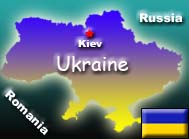Russia, Ukraine in new effort to resolve gas dispute
 Moscow - Ukrainian leaders were set to arrive in Moscow on Saturday in a push to end a protracted contractual dispute with Russia that has frozen nearly all gas supplies to Europe.
Moscow - Ukrainian leaders were set to arrive in Moscow on Saturday in a push to end a protracted contractual dispute with Russia that has frozen nearly all gas supplies to Europe.
The European Union, which buys one-quarter of its gas from Russia, called the talks the "last and best chance" for both sides to salvage their reputation as reliable suppliers.
Kiev and Moscow have both sought to bring the EU in as an arbitrator in their dispute, but rushed attempts to hold competing energy summits in each capital were largely snubbed by Western Europe, who seemed in angry retreat after a failed bid to broker renewed gas transits one week ago.
The format of talks to be held in the Kremlin was not clear, with journalists being accredited to an unspecified event.
A separate planned meeting between Ukrainian Prime Minister Yulia Tymoshenko and her Russian counterpart Vladimir Putin at the government building in Moscow was seen to be the make or break in negotiations.
The heads of Russia's Gazprom, Alexei Miller, and Ukraine's Naftogaz, Oleh Dubina, would also take part in the talks along with both countries energy ministers and other high-ranking officials, a government spokesman said.
On the Russian side, Energy Minister Sergei Shmatko and deputy prime minister in charge of energy Igor Sechin, and from Ukraine, energy minister Yuri Prodan.
The EU said Czech Industry Minister Martin Riman, whose country holds the bloc's rotating presidency, and Energy Commissioner Andris Piebalgs would attend the talks.
President Dmitry Medvedev had urged the European leader to heed his call to the summit Friday, warning bilateral talks could not bring results.
"Unfortunately, this issue has gone beyond bilateral relations," he said. "We are ready to look for any long-term solution. We hope Ukraine is ready act responsibly and that our European partners will help bring about the necessary decisions."
But Czech Prime Minister Mirek Topolanek said the EU should speak with one voice, and France pointedely saying the time was not ripe for a summit until the gas was flowing to Europe again.
"I wish that the discussion in the EU would no longer be about bilateral agreements but about a common European policy ... it indicates a need to lower dependence," Topolanek said, adding both parties had "irrevocably" damaged their credibility.
Croatian deputy prime minister Damir Polancec, Turkey's Energy Minister Hilmi Guler would also attend the Kremlin talks.
In Kiev, President Viktor Yushchenko's hurried plans for a summit of Eastern European leaders Friday was downscaled to a meeting with the Slovak President, the Moldovan prime minister and the Polish foreign minister.
The message of European leaders was summed up in a word - speed - as patience wore thin in the second week of the fuel embargo and the human and economic costs of shut factories and short reserves became biting.
German Chancellor Angela Merkel, who held talks in Berlin on Friday with Putin, told reporters that both sides were looking at a "test phase" of deliveries, under which a consortium of gas companies would sponsor the cost of extra gas volumes needed to repressurize the pipelines and European monitors would control the flows.
"Time is of the essence," Merkel said.
The proposal by the consortium, including Germany's E. ON Ruhrgas and Italy's ENI and France's Gaz de France, would allow Kiev and Moscow to bypass the question of who should pay for the initial injection of "technical gas" needed to jump star supplies - a main sticking point in their dispute.
But the two countries are still far apart on a new contract for gas pricing and transit fee for 2009.
Gazprom now demands Kiev pay 450 dollars per 1,000 cubic metres for gas in 2009, closer to EU prices but up from 179.5 dollars last year. It also claims a
614-million-dollar debt for late payments.
The talks Saturday are the highest-level meetings between both sides since Russia first reduced gas flows on January 1 when they failed to sign a new contract.
Russia then cut all supplies of gas to Ukraine on January 7, accusing Kiev of siphoning off deliveries to Europe - 80 per cent of which travel through its pipelines.
Feeding the stand-off are long-simmering political tensions between the two post-Soviet neighbours. Moscow resents moves by Ukraine`s pro-Western president, Yushchenko, to join NATO and its support for Georgia in its war with Russia last August. (dpa)